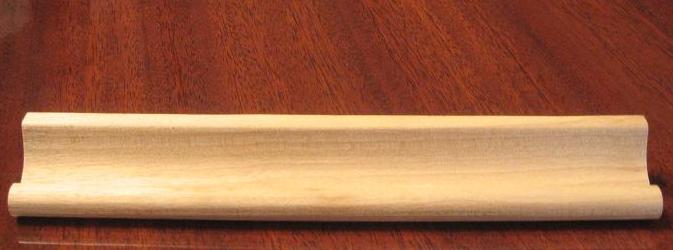Inc1 chapter 1 Word Scramble

|
Embed Code - If you would like this activity on your web page, copy the script below and paste it into your web page.
Normal Size Small Size show me how
Normal Size Small Size show me how
| Question | Answer |
| How is the scientific method and the process of science used to solve problems? | It helps us understand out Natural invironment. |
| What is the scientific method? What is its purpose? | An orderly method of gaining, organizing, and applying new knowledge. Observe, question, hypothesize, predict, test, & draw a conclusion. - To propose explanations for natural phenomena |
| Explain the following componant of the scientific method: Observation | Watching and understanding your invironment. |
| Explain the following componant of the scientific method: Hypothesis - Periction | An educated guess or a reasonable explanation. |
| Law or principle | A general hypothesis or statement about the relationship of natural quantitites that has been tested over and over again and has not been Contradicted. |
| Principle of Falsifiability | For a hypothesis to be considered scientific it must be testable-it must, in priciple, be capable of being proven wrong. |
| Fact | A phenomenon about which competent observers can agree. |
| Theory | A synthesis, or collection, of a large body of information that encompasses well-tested hypotheses about certain aspects of natural world. |
| Science | The collective findings of humans about nature, and a process of gathering and organizing knowledge about nature. |
| When did modern science begin? | 16th Century |
| Who were the first two men to formalize a parataicular method for doing science? | Galileo Galilei & Francis Bacon. |
| What is the cardinal rule in science? | All hypotheses must be testable. They must be capable of being shown wrong. |
| Aristotle claimed what? | That heavy objects naturally fall fasater than light objects? |
| What did Galileo do that changed science forever? | He experimented. |
| Biology | Is the study of living organisms |
| Chemistry | Is concerned with the composition structure and properties of matter as well as the changes it undergoes during chemical reactions. |
| Physics | The study of change, movement or motion thropugh space and time. |
| Geology | The study of the solid and liquid matter that is the earth. |
| Astronomy | One of the oldest sciences. The study of celestial objects and phenomena that originate outside the earths atmosphere. |
| Limitations of science | Science can not determine value. Science can not answer questions of morality. Super-natural |
| Who used logic & rational thought in a systematic way? | Ancient Greeks |
| What are the arts concerned with and what do they ask? | Personal interpretation & creative expression. - They ask "Who?" |
| What is religion concerned with and what does it ask? | It addresses the source, purpose, & meaning of it all, and asks "Why?". |
| What does science ask? | How |
| Technology | The means of solving practical problems by applying the findings of science. The means of solving practical problems by applying the findings of science. |
| Natural Philosophy | Science is the present-day of what used to be called Natural Philosophy, which is the study of unanswered questions about nature. |
| What does the study of science branch into the study of? | Living & non living things (life sciences & physical sciences) |
| What does life science branch into? | Molecular biology, microbiology, and ecology |
| What does physical science branch into? | Physics, chemistry, earth sciences, & astronomy. |
| What do physics & chemistry do when applied to earth and its processes? | They make up earth science. Geology, meteorology, & oceanography. |
| What are we speaking about when we apply physics, chemistry, and geology to other planets and to the stars? | Astronomy |
| Kilogram | The unit of mass. Equals the mass of 1 liter of water at 4C. |
| Kelvin | A unit of absolute temperature, one kelvin degree is equal to one celsius degree |
| pH units | Stands for potential of hydrogen. instrument used to test the acidity or alkalinity of a liquid |
| Joules | The derived unit of energy in the International system of units. |
| Newtons | Scientific unit of force. It is equal to the amount of net force required to accelerate a mass of one kilogram at a rate of one meter per second squared. F=ma |
| Liter | Unit of volume. |
| Grams | Measures mass, base unit is kilogram |
Created by:
tbforce
Popular Science sets
